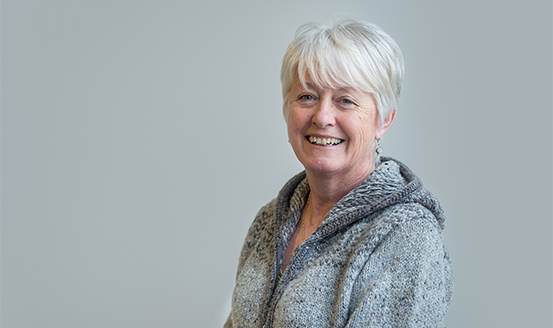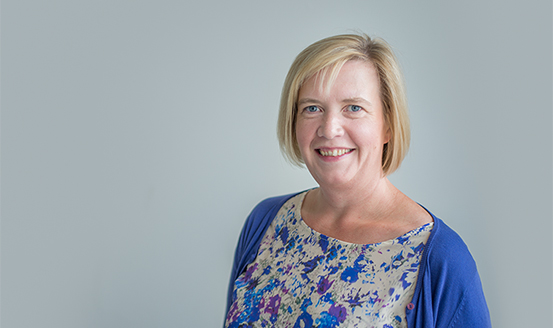Advancing Practice in Occupational Therapy (Post-Registration) - MSc
Are you a qualified occupational therapist looking to develop your knowledge and evolve or change your career direction? This MSc in Advancing Practice in Occupational Therapy (Post-Registration) course will suit occupational therapists from a wide range of settings and give you the support you need to redefine your career as an advanced practitioner in education, research, leadership, policy or practice.
This highly respected course offers an excellent opportunity to help you fulfil your career goals and you can study full time or part time to fit in with your current commitments.
Why QMU?
- Unique: This is the only post-registration course specific to occupational therapy practice in Scotland.
- Tailor your studies: You can select specific modules for your continuing professional development studies and you can direct your own learning, focusing on aspects relevant to your own practice or specialist interest as topics most of the modules on the course.
- Flexible study options: You can structure the delivery and duration of this highly flexible course around your own study and work goals and continuing professional development.
- Staff expertise: QMU’s occupational therapy teaching team work across all occupational therapy courses with the aim of establishing a learning community at undergraduate, postgraduate and doctoral studies. Joining the MSc Advancing Practice in Occupational Therapy you will be part of this learning community and contribute to it’s growing wealth of expertise and experience.
- Industry links: There are opportunities to apply your own learning to practice, and the final dissertation offers the opportunity to investigate or evaluate a question arising from your own specialist interest or practice area.
Advancing Practice in Occupational Therapy: Post-Registration (MSc): More information and what you will achieve
This course is designed to support practitioners to develop and advance their practice across a variety of contexts. The course highlights the transformational role of education that will equip occupational therapists to develop and promote sustainable and progressive practice.
As a student on this course you will develop your knowledge of the evidence base for/of practice and deepen your critical thinking, professional reasoning and research skills.
The MSc Advancing Practice in Occupational Therapy is embedded as an integrated pathway which affords equal attention to both the philosophy of occupation and of person-centredness. This Framework offers a student-centred approach to education, fostered through three approaches to learning: experiential and collaborative learning, critical discourse and evidence-based teaching.
Specifically, the course aims to ensure the centrality of occupation as part of therapists’ postgraduate education and, in so doing, responds to the strategic drivers for change towards advanced and person-centred practice in global health and social care. Educationally, it will address philosophical concepts from occupational science and person-centred practice that will be blended throughout the course to facilitate learning at master’s level.
How will I be taught?
Structure and exit awards
You can opt to study for the MSc (180 credits), a PgDip (120 credits) or a PgCert (60 credits).
You can also register as an associate student to undertake one or two modules as part of continuing professional development. On completion of a single module, you may wish to complete further modules and progress your studies to a named award. Contact Susan Prior for more information on single module study.
Teaching, learning and assessment
The learning experience promotes independent, student-led study, classroom-based and distance learning. This encourages students to use library, web and other resources to seek out information. Assessment on this course will be carried out through a variety of strategies, drawing on your own practice experiences. It can include case-based work, presentations, essays, systematic and literature reviews, a research proposal outline and development of a learning contract.
Teaching hours and attendance
Each module that you study on campus will require you to attend classes and carry out independent work. Your attendance requirements at QMU will depend on the module you are studying and whether you are studying full-time or part-time. Some modules are also available by distance learning.
Class sizes
Normally, there are around 15-20 students undertaking the course each year.
Teaching staff
You can read more about the teaching staff on this course at the bottom of this page. Please note that teaching staff is subject to change.
Modules
- Theory & Practice of Person-Centred Health & Wellbeing (20 credits): This postgraduate module is open to health and social welfare workers, including those from voluntary organisations, who wish to develop their understanding of the ideas, theories and models shaping person-centredness and who want to critically reflect on their practice.
- Leading Person-Centred Practice for Health & Wellbeing (20 credits): This module aim to support learners to lead and innovate collaborative ways of working with children, young people and families that are consistent with the values of person-centredness, evidence generation and implementation of health and wellbeing approaches for healthful cultures.
- Research Methods (20 credits): In this module, we explore and discuss the nature of research. We will be helping you to deepen your understanding of the principles of research, and research methodologies. This will enable you to evaluate the credibility of published research, help you with critical writing and ultimately, to design your own studies.
- Critically Engaging with Occupation 1 (20 credits): This module will enable you to explore key ideas from occupational science, develop your skills in thinking critically around these, and discussing how these ideas can be applied to considering key issues facing our societies today, particularly in respect to health and wellbeing of all peoples.
- Critically Engaging with Occupation 2 (20 credits): This module aims to: extend critical engagement with the concept of occupation, to examine and re-vision the relationship between occupation and health and well-being, to promote occupational therapy as a moral and socially responsive profession.
- Optional module choice (20 credits)
NB The modules listed are correct at time of posting (October 2023) but are subject to change. In the event that modules change, QMU will seek to use reasonable endeavours to ensure that there is no detrimental impact on students.
Career opportunities
This course will enable occupational therapists to develop or change career direction to advanced practitioner, education, research or management. The course does not lead to registration with the Health Care Professions Council (HCPC).
Advancing Practice in Occupational Therapy: Post-Registration (MSc): Entry requirements and application information
Entry requirements
Normally, a World Federation of Occupational Therapists approved honours degree or equivalent in occupational therapy and HCPC registration or equivalent.
International: You will be required to provide evidence of English language competence at no less than IELTS 6.5 with no individual component score less than 6.0.
International students registering for the named award will normally have gained their professional qualification from a school recognised by the World Federation of Occupational Therapists.
Disability/health conditions
If you have a disability, long-term physical or mental health condition, or learning disability, it should not stand in the way of your studying at QMU. However, if you are not sure whether your disability might be a barrier in your studies or in relation to the professional standards, please contact the disability service who will be able to have a conversation with you about reasonable adjustments and supports available to you.
Applying for this course
For more information on applying, or to apply for this course, please follow the links in the 'Start your application' box at the top right of this page.
Application deadline
The course accepts applications throughout the year, normally the deadline for each academic year is mid August. The deadline for international students will typically be the end of June.
Terms and Conditions
The delivery of this course is subject to the terms and conditions set out in our 2024/25 Entry - Terms and Conditions (Postgraduate).
More information and contacts
Contact Dr Susan Prior (Programme Leader) or Admissions
Opportunities to meet us
Become your best you: study at QMU
Course Overview
Join us at one of our Postgraduate Open Events
Find out about online and in-person opportunities to meet with us to find out more about our postgraduate courses and study at QMU.
Postgraduate Open Events - More Info and BookingsCourses You Might Also Like
- MSc Advancing Practice in Signed/Spoken Language Interpreting
- MSc Occupational Therapy (Pre-Registration)
- MSc/PgDip Advancing Practice in Dietetics (Advancing Practice in Health Framework)
- MSc/PgDip Advancing Practice in Medical Imaging (Advancing Practice in Health Framework)
- MSc/PgDip Advancing Practice in Physiotherapy (Advancing Practice in Health Framework)
- MSc/PgDip Advancing Practice in Podiatry (Advancing Practice in Health Framework)
- MSc/PgDip Advancing Practice in Radiotherapy (Advancing Practice in Health Framework)








